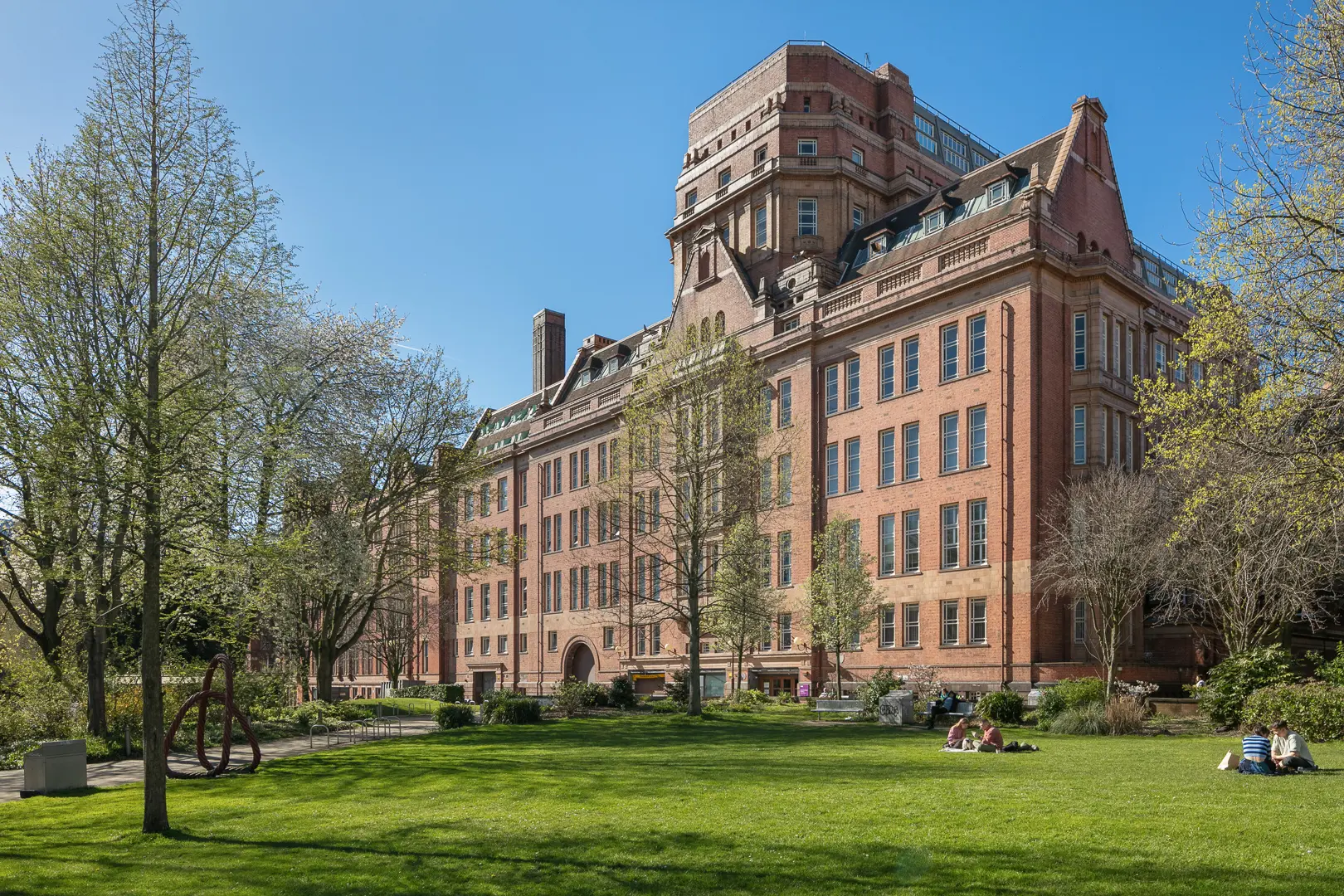A strategic regeneration framework (SRF) for The University of Manchester’s former North Campus has been put forward to Manchester City Council, outlining the future of the trailblazing new, £1.7bn city centre district, ID Manchester, by its joint venture (JV) partners, Bruntwood SciTech and The University of Manchester.
The framework sets out a vision for ID Manchester to be recognised internationally as one of the world’s leading applied innovation districts providing unique access to disruptive technologies and ideas. Its core specialisms will be centred around advanced materials, health innovation, digital technology and biotech.
The completed development is set to create over 10,000 new jobs and deliver education, apprenticeship and training opportunities for local communities. The illustrative masterplan totals over 4 million sq ft, with the potential to accommodate over 2 million sq ft of commercial and retail space, and over 1,500 homes. It will breathe new life into key heritage assets on-site, such as the Sackville Street and Renold buildings and Vimto Park, and adopt a “living landscape” approach to the district’s nine acres of public realm, enhancing existing green spaces, reconnecting communities with nature and improving urban biodiversity by at least 10%. Once complete, ID Manchester will bring significant economic, social and environmental benefits to the city, and contribute circa £900m GVA annually.
In a prime central location next to Piccadilly Railway Station, ID Manchester will benefit from its unique position adjacent to the University’s pioneering research facilities, the Graphene Engineering Innovation Centre and the Manchester Institute of Biotechnology, and within the innovation ecosystem clustered around the Oxford Road Corridor, including Circle Square, Citylabs and Manchester Science Park – all of which are part of the Bruntwood SciTech network.
ID Manchester will become a world-class innovation platform that drives inclusive and sustainable economic growth for the city by leveraging the unique experience and expertise of its joint venture partners, combining The University of Manchester’s long history of industry collaboration and world-class research strengths with Bruntwood SciTech’s experience of working in strategic partnership with city councils, universities and NHS Trusts to deliver connected science and technology infrastructure.
The University selected Bruntwood SciTech, a 50:50 joint venture between Bruntwood and Legal & General and the UK’s leading property provider dedicated to driving the growth of the science and technology sector, as its development partner in 2022 following a two-year international competition to find a partner that shared the University’s vision and had the skills, capability and track record of delivering places designed for collaboration and innovation.
The SRF will update and replace the 2017 North Campus SRF and set out the scale, ambition and opportunities that ID Manchester brings to the city. It includes a series of principles that will guide detailed plans for development and future planning applications. Manchester City Council’s Executive Committee will be asked next week to endorse the ID Manchester SRF and approve the launch of a public consultation. Further details of the proposed plans will become available for public view during a six week public consultation, whereby the local community will have the opportunity to learn more about the illustrative masterplan and share their views.
Lou Cordwell OBE, Director ID Manchester and chair of the GM Business Board said “Over the next 15 years, we have the opportunity to design a whole new district of the city that will establish Manchester as a global leader for applied innovation and drive new skills, ideas and economic growth in both Manchester and the UK.
“ID Manchester marks a step change in the UK’s ambition to be a world leader in science and tech, not only supporting the UK’s Innovation Strategy, but also creating the exemplar for inclusive innovation – our values of sustainable growth, inclusivity and positive social impact will be at the heart of ID Manchester. We’re excited to share our plans with the public and welcome their feedback on how ID Manchester can benefit Greater Manchester communities.”
John Holden, Associate Vice-President for Major Special Projects, The University of Manchester: “ID Manchester is an exciting opportunity for new ideas and research to be commercialised and scaled up in Manchester, centred on the Oxford Road Corridor, and to create thousands of high-quality jobs in future-facing industries.
“As one of the world’s leading innovation districts, it will have an emphasis on driving inclusive innovation that works for people and the planet. This is a critical mission for the University, which is ranked first in the UK, first in Europe, and second in the world in the 2023 Times Higher Education Impact Rankings, based on our performance against the United Nations Sustainable Development Goals.
“ID Manchester will bring huge economic benefit to the city and make a major contribution to Greater Manchester and the national government’s ambitions to use R&D and innovation as an enabler for job creation and levelling up in the UK.”
Cllr Bev Craig, Leader of Manchester City Council, said: “Manchester is known across the world for its industrious history, but Manchester’s economy has been transformed over the last two decades as one of the fastest growing in Europe. A growing economy, with people at its heart.
“The Oxford Road corridor and its environs has been central to Manchester’s innovative spirit for generations – a globally recognised hub for education, innovation and research. The ethos behind ID Manchester continues that tradition, creating opportunities for the city’s emerging specialist sectors in health, advanced materials and biotech to develop and grow. We welcome this level of ambition to diversify and grow our economy – while creating thousands of new jobs alongside pathways to learning and apprenticeships for Manchester people to realise their potential, sharing in the success of the city.”

